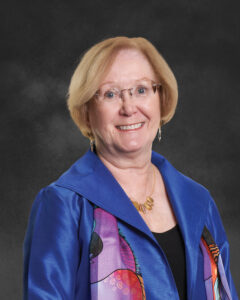
Trudy Mackay, PhD
Clemson University
Director, Center for Human Genetics; Self Family Endowed Chair of Human Genetics Professor – College of Science
Expertise:
complex traitscomplex traitsDna AnalysisDna AnalysisDNA sequencesDNA sequencesGeneticsGenetics
Mackay is recognized as one of the world’s leading authorities on the genetics of complex traits, a field of study concerning the mitigation of aging and disease, that has seen exponential growth in the last decade with advances in technology that Mackay has placed herself squarely on the forefront of. As director of the Center for Human Genetics and a fellow of the prestigious National Academy of Sciences, Mackay is a world leader in groundbreaking research that reveals the genetic and environmental basis of human diseases. Only about 2 percent of the human genome codes for proteins, the building blocks of the human body, are known. Mackay pioneered a research model based on the common fruit fly because about 70 percent of the fruit fly genome has a human counterpart. Through collaborations with other institutions (like the National Institutes of Health, the National Institute for Drug Abuse and the Greenwood Genetics Center) and other top scientists, she uses her model to explore the 98 percent that is unknown, hoping to find pathways that can lead to cures for terminal and mental illnesses that affect people globally and have so far stumped doctors and scientists. The partnerships give her a heightened ability to quickly and efficiently translate basic research into tangible treatment options. Mackay and her seasoned team of geneticists, including her husband, Robert Anholt, work out of state-of-the-art laboratory facilities on the Clemson University innovation campus, a part of the Greenwood Genetic Center Partnership Campus. There she uses her 30-plus years of experience to add to a long history of clinical and research excellence in the field of medical genetics, which in turn is used to improve the lives of families impacted by genetic disease and congenital disabilities. Ultimately, her research will translate to effective treatments for those diseases and will also help inform potential treatments for others. Mackay is a recipient of Trinity College’s Dawson Prize in Genetics, which is awarded to geneticists of international prominence, and numerous other accolades including being a fellow of the American Association for the Advancement of Science, the American Academy of Arts and Sciences and the Royal Society of London.
Title |
Cited By |
Year |
|---|
No Pitches / Articles Found
"When I started working in genetics more than 30 years ago, no one knew a single gene affected a single quantitative trait. There’s just been an explosion of knowledge in the human population particularly since 2007, 2008. There have been more than a thousand genes discovered for height. There have been huge studies done by the NIH on many of the common diseases like schizophrenia, metabolic diseases, cardiovascular diseases –– but all of these studies take a very simplistic view of complex traits."
Mackay emphasized that although the team’s study identified hundreds of metabolites, the genetic basis of variation in those metabolites is still difficult to elucidate. Many more studies on the genotype-metabolite-phenotype relationship will need to be carried out to consolidate the genetic underpinnings of metabolite diversity.
“Only in recent years, with the sequencing of the entire transcriptome complete, have we realized how many RNA species are actually present. So, that raises the whole new question: if they aren’t making the proteins – the work horses of the cell – then what are they doing?”